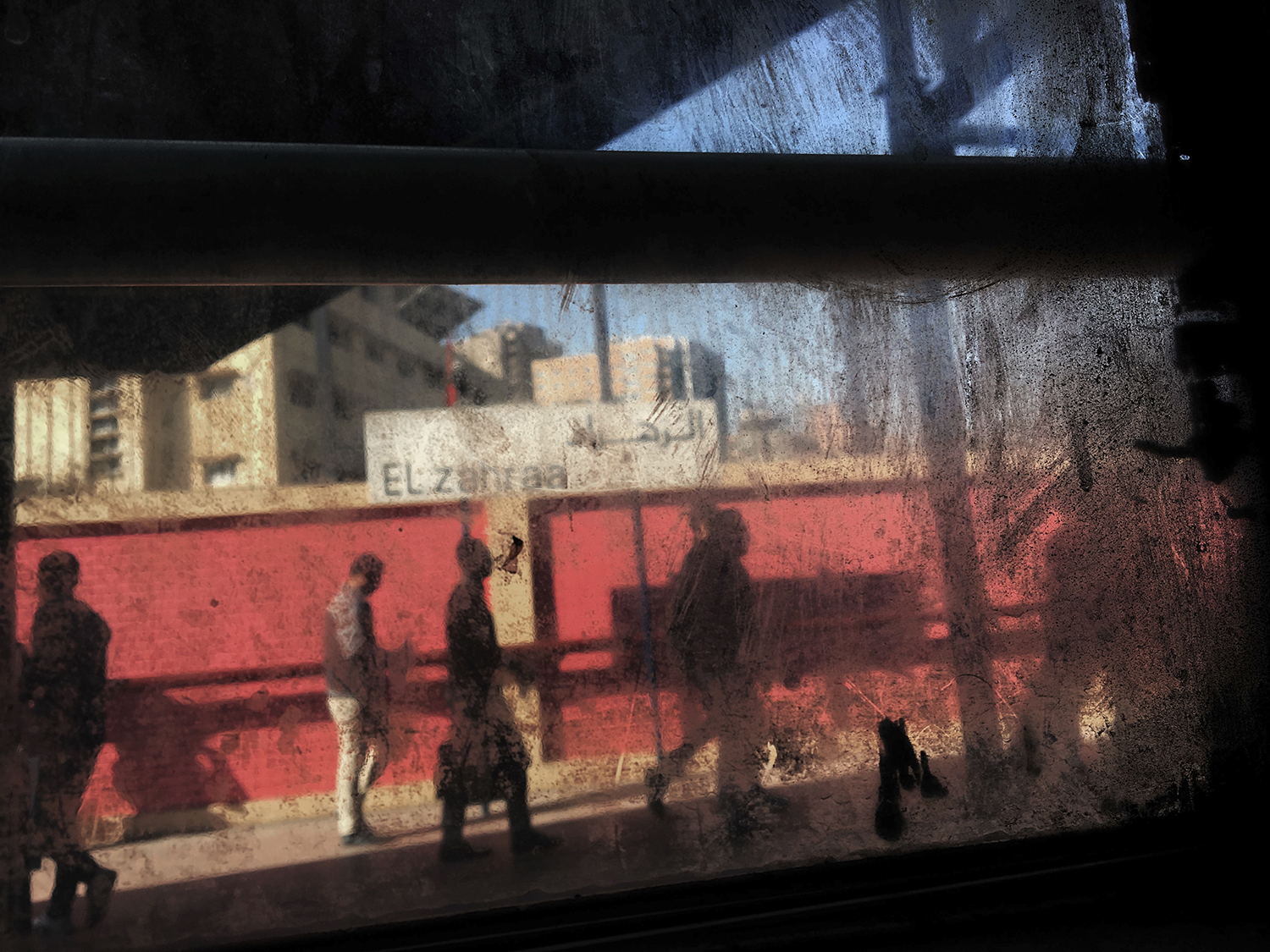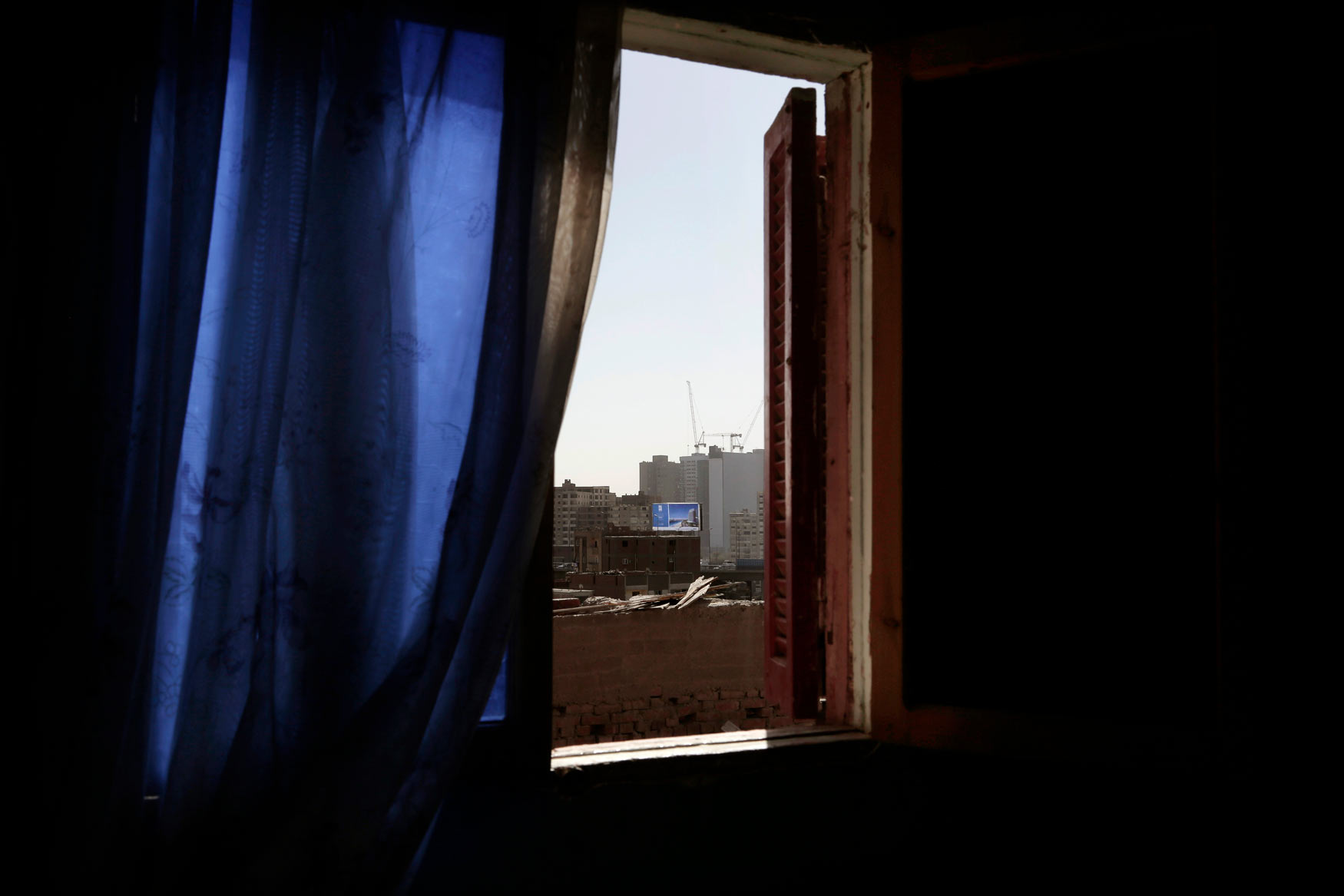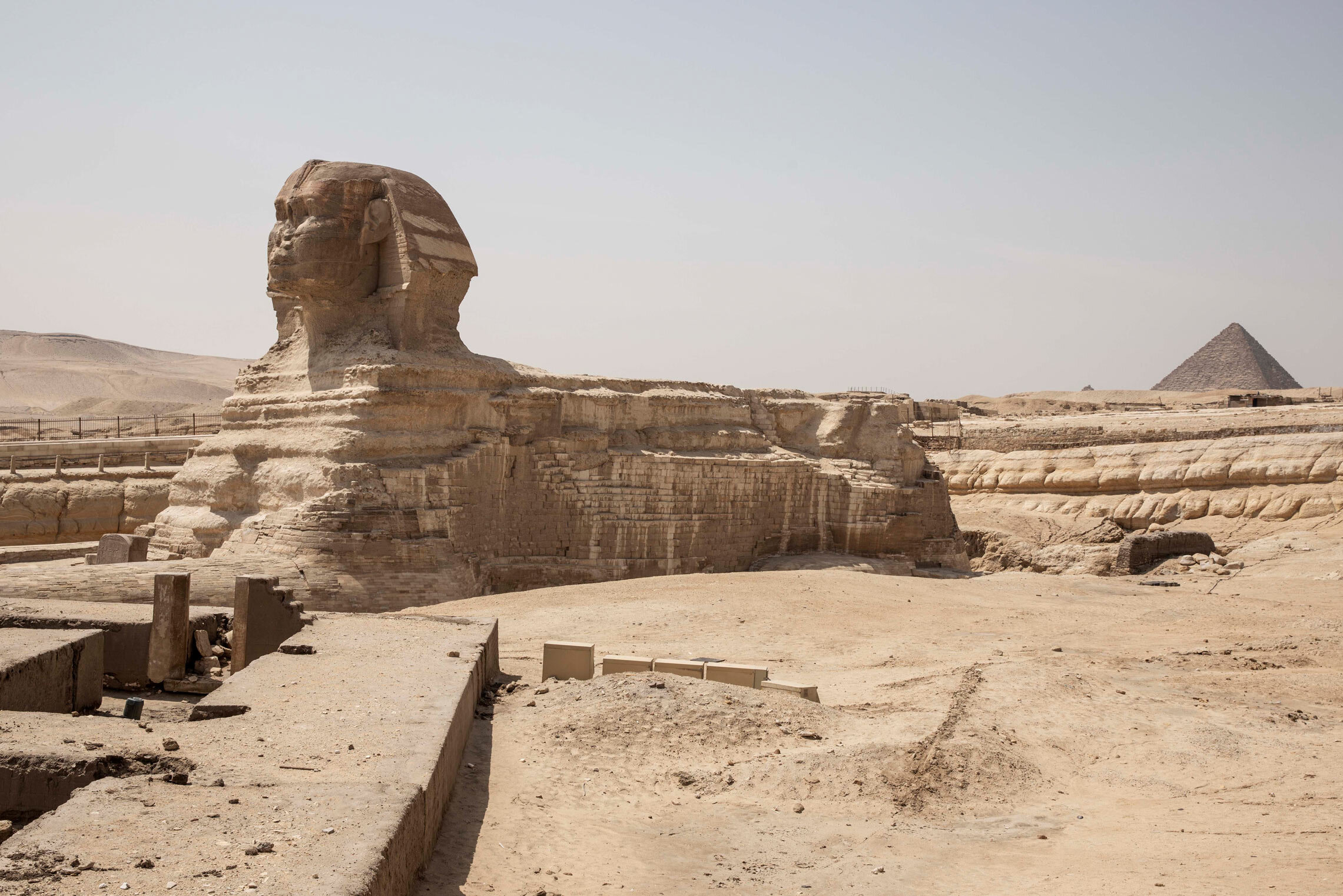Cairo’s subway speaks of economic woes

Cairo’s subway is perhaps the cheapest in the world. For a fare equivalent to 11 U.S. cents, you can ride as far as you want across the overcrowded, traffic-choked Egyptian capital.
But even that feels like a burden for many of the millions who ride it each day, at a time when Egyptians are scraping to get by, their purchasing power gutted amid painful economic reforms being implemented by the government.
In this Feb. 1, 2017 photo, a man waits for a train at Tura El Balad metro station, in Cairo, Egypt. (AP Photo/Nariman El-Mofty)
In this May 17, 2017 photo, beer bottles and soda cans lay along the railing of a metro station, in Cairo, Egypt. (AP Photo/Nariman El-Mofty)
The 30-year-old Cairo Metro typifies Egypt’s deep economic inequalities and the large distances between classes. Unlike subways in New York, Washington, Paris and elsewhere in the world where the well-off and the poor mingle to at least some extent, the passengers who push and shove in and out of Cairo’s metro cars each day are overwhelmingly poor or from the lower middle classes.
Vital for those who take it, the subway is scorned by the upper crust that doesn’t need it.
In this May 16, 2017 photo, commuters reflected in glass ride a metro car, in Cairo, Egypt. (AP Photo/Nariman El-Mofty)
This March 12, 2017 photo, shows the ladies only stop at Mar Girgis metro station in Cairo, Egypt. (AP Photo/Nariman El-Mofty)
Its stations and cars are almost bare of billboards because advertisers dismiss the passengers as “C Class” consumers. Residents of an upper-class district on a Nile island are furiously resisting having a station built in their neighborhood, fearing it will bring a flood of slum-dwellers. Despite traffic jams greeting those commuting back and forth into the city, there is no talk of extending the metro to the modern suburbs rising in the surrounding desert, where the better-off have been moving for years to escape Cairo’s urban blight.
It is also one place where Egyptians’ economic vulnerability runs head on into the demands of reform.
The government desperately needs to get its finances in order, unable to afford the billions it spends to keep food, fuel and many services at near rock-bottom prices. So it has reduced subsidies, increasing fuel prices and devaluing the Egyptian pound, which fell from eight to the dollar to around 18. Economists and foreign donors have praised the moves, which no previous government dared carry out.
In this Feb. 1, 2017 photo, an Egyptian security stands guard at a metro station, in Cairo, Egypt. (AP Photo/Nariman El-Mofty)
In this March 12, 2017 photo, women commute on a ladies only metro car, in Cairo, Egypt. (AP Photo/Nariman El-Mofty)
But the resulting inflation — currently around 30 percent — hit hard on a population where few have room to tighten their belts. Nearly a third of Egypt’s population of 93 million lives under the poverty line, earning less than $2 a day. Many millions more hover just above the line, earning only slightly more.
In March, authorities doubled the metro fare from one pound to two.
In dollar terms, that’s actually cheaper. A year ago, one pound equaled about 12 U.S. cents. Now after the plunge in value, two pounds are worth around 11 cents.
But for passengers, who largely earn the same salaries in pounds now that they did last year, the doubling was another painful blow.
In this May 17, 2017 photo, boys run to get on a train at Helwan metro station, in Cairo, Egypt. (AP Photo/Nariman El-Mofty)
This May 18, 2017 photo, shows rain drops on the platform of a metro station, in Cairo, Egypt. (AP Photo/Nariman El-Mofty)
Complaints over the fare increase were so loud that President Abdel-Fattah el-Sissi angrily pushed back in a TV appearance.
“You tell me you are poor and cannot afford it. Well, let me tell you that I (the government), too, am poor and cannot afford it,” he said, visibly frustrated. In late May, he was furious with a lawmaker who, on live television, asked that further increases in fuel and electricity prices be put off until a minimum monthly wage of 3,000 pounds (about $165) is introduced.
“Who are you?” the president shouted. When the lawmaker identified himself as a member of the House of Representatives, el-Sissi said dismissively, “What representatives? Did you study the topic you are talking about?”
In late June, fuel prices rose by up to 55 percent and on Thursday, the government announced electricity prices were hiked by more than 40 percent.
In this March 13, 2017 photo, people are seen from the window of a metro car, at El Zahraa metro station in Cairo, Egypt. (AP Photo/Nariman El-Mofty)
El-Sissi has repeatedly made the case that consumers have to start paying something closer to the actual cost of services. The metro is saddled with $27.7 million in debt and runs annual losses of $11.1 million, according to Transport Minister Hesham Arafat.
“It’s fine if he wants to charge me international prices for public services. I’ll pay,” said Hisham Mohammed, a 26-year-old law graduate riding the subway on a recent day. “But, in return, I need him to give me democracy and freedom of international standards,” he said, alluding to el-Sissi’s iron-fist rule and the erosion of freedoms and human rights in the three years he has been in office.
In this May 17, 2017 photo, people wait for a train at a metro station, in Cairo, Egypt. (AP Photo/Nariman El-Mofty)
Mohammed was studying in the subway car as he headed to an exam for a post-graduate diploma. As a government employee, he makes 3,000 Egyptian pounds a month, a salary that nearly overnight dropped from the equivalent of $400 to $165. He’s trying to get more degrees to get a promotion or find a more lucrative job in the Gulf.
Nearly 5 million people a day in the city of 18 million use the subway. Running along three lines, it is by far the fastest mode of transport, since nightmarish traffic can jam the streets at all hours day and night.
Only some trains are air conditioned, leaving people on other trains sweltering in the punishing summer heat. Commuters sometimes face 15 or 20 minute waits, making packed rush-hour trains even more crowded. Shouting matches are common, especially since everyone storms in the moment train doors open without letting those inside exit.
At a time when security forces are in a years-long fight with Islamic militants, metal detectors have been set up at entrances of all stations, though commuters are rarely searched when the device beeps. Sniffer dogs and policemen, some wearing body armor, patrol stations. Posters of wanted militants are plastered next to ticket booths.
The subway’s trains and 61 stations are depressingly bare. There are no street performers or entertainment, hardly any shops and few ads.
But there’s plenty of commerce.
Peddlers constantly hawk a wide variety of cheap goods, including eyeliners, knock-off mobile phone accessories, lighters, packets of underwear, molasses candies, toys, and — for afternoon commuters — fruits and vegetables to take home. They file down the aisles dropping merchandise in each person’s lap, then return collecting either money or the merchandise.
Beggars pass through as well, some of them children. Many are women wearing the niqab, a veil covering the entire face except the eyes, which gives them anonymity and can win sympathy from religiously conservative passengers.
One woman in a niqab on a recent ride gave graphic details about her daughter’s illness, saying the costs of treatment forced her to beg. “I would have never asked for your help had I not really needed it,” she pleaded.
In the train cars, some read the Quran or pray. Others kill time on mobile phones or mingle and chat, giving the trains the atmosphere of their home neighborhoods.
Commuter Dina Abel-Fetouh recalled how once while she was riding in one of the two women-only cars on every train, she got sick with stomach pain and all the women rushed to comfort her. “When I started crying, the women thought it was a man thing and started telling me he wasn’t worth it,” she said laughing.
Despite the crowds, she loves the metro.
“Cairo traffic makes me angry, nauseous and it’s a waste of time,” she said. “I think I would have quit my job had it not been for the metro.”
Text from the AP news story, Shunned by the rich, Cairo's subway speaks of economic woes, by Hamza Hendawi.
Photos by Nariman El-Mofty
Associated Press writers Sam Magdy and Nariman El-Mofty contributed to this report.
Follow AP photographers on Twitter
Written content on this site is not created by the editorial department of AP, unless otherwise noted.





